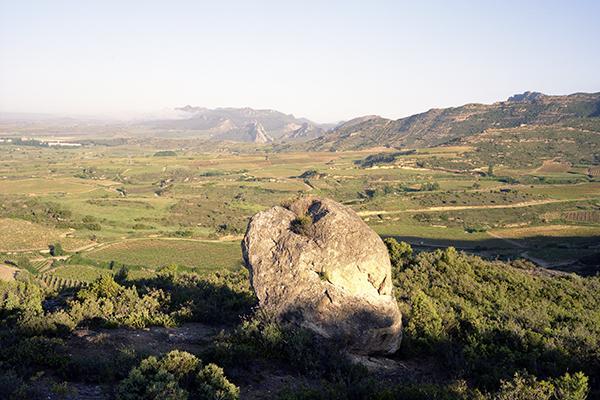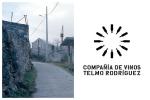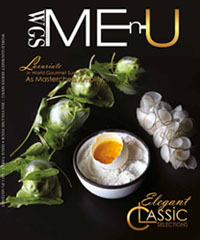WINERY DETAILS
Compañía de Vinos Telmo Rodríguez


In 1994, Pablo Eguzkiza and Telmo Rodríguez, along with a third oenologist, created a Garnacha from old bush vineyards in Navarra. The wine was called Alma (soul). This is how the business started, originally under the name of Compañía de Vinos de La Granja.
The name was a declaration of intent: it made it clear that the company would be producing more wines in the future and contained a homage to La Granja, the famous glassworks, a centre of outstanding Spanish craftwork that has all but disappeared. Even though the wine was successful, the increase in grape prices during the 1990s and the lack of commitment from the local co-operatives, forced the company to leave the area and focus on other projects.
Rueda is the second area Telmo and Pablo went to explore, and it was here that the Basa project was born. Back then, they exported all of their wines. But with the creation of other wines such as Aran, Molino Real and Lanzaga, the need for a single umbrella brand arose. The company at this stage belonged entirely to Pablo Eguzkiza and Telmo Rodriguez, who decided to call it “Compañía de Vinos Telmo Rodriguez”, (the Telmo Rodriguez Wine Company) to take advantage of Telmo’s position in the wine world, as well as his pioneering work with Spanish viticulture.
From the start, the aim of the company has been to use native Spanish varieties. This philosophy originally differed from the on-going interest in the planting of foreign varieties, pretty much in every Spanish vineyard region. Another noteworthy initiative, again from the earliest days of the business, is the recovery of abandoned or forgotten vineyards. This is how the projects in Malaga, with Molino Real, and in Cebreros , with Pegaso, emerged.
An initial lack of financial resources forced the company to focus on comparatively simple and rapidly marketable wines. Wines produced in Navarra, Rueda, Alicante, Toro, Aragón, Ribera del Duero, Rioja, Valedorras and Cigales allowed the partners to study the Tempranillo, Tinto fino, Tinta de toro, Garnacho, Monastrell, MencÍa,
Verdejo, Viura and Godello grape varieties in depth. The aim was to reflect a sense of place based most of all on good viticulture and outstanding growers.
Wines like Dehesa Gago, Basa, Gaba do Xil, Viña 105, Gago, Gazur, Almuvedre, LZ and MR emerged from this work. At Compañía de Vinos Telmo Rodriguez, the owners are adept at seeking out the best areas, encouraging the leading grape growers and developing partnerships with leading distributors in the main international markets. Compañia de Vinos Telmo Rodriguez has also developed a series of one-off projects for importers or special customers, such as Marks & Spencer in Great Britain. This has brought brands like Pago Real, Pérez Burton and Peña del Infierno to a wider audience, highlighting the progress that has been made in Spanish vineyards.
The name was a declaration of intent: it made it clear that the company would be producing more wines in the future and contained a homage to La Granja, the famous glassworks, a centre of outstanding Spanish craftwork that has all but disappeared. Even though the wine was successful, the increase in grape prices during the 1990s and the lack of commitment from the local co-operatives, forced the company to leave the area and focus on other projects.
Rueda is the second area Telmo and Pablo went to explore, and it was here that the Basa project was born. Back then, they exported all of their wines. But with the creation of other wines such as Aran, Molino Real and Lanzaga, the need for a single umbrella brand arose. The company at this stage belonged entirely to Pablo Eguzkiza and Telmo Rodriguez, who decided to call it “Compañía de Vinos Telmo Rodriguez”, (the Telmo Rodriguez Wine Company) to take advantage of Telmo’s position in the wine world, as well as his pioneering work with Spanish viticulture.
From the start, the aim of the company has been to use native Spanish varieties. This philosophy originally differed from the on-going interest in the planting of foreign varieties, pretty much in every Spanish vineyard region. Another noteworthy initiative, again from the earliest days of the business, is the recovery of abandoned or forgotten vineyards. This is how the projects in Malaga, with Molino Real, and in Cebreros , with Pegaso, emerged.
An initial lack of financial resources forced the company to focus on comparatively simple and rapidly marketable wines. Wines produced in Navarra, Rueda, Alicante, Toro, Aragón, Ribera del Duero, Rioja, Valedorras and Cigales allowed the partners to study the Tempranillo, Tinto fino, Tinta de toro, Garnacho, Monastrell, MencÍa,
Verdejo, Viura and Godello grape varieties in depth. The aim was to reflect a sense of place based most of all on good viticulture and outstanding growers.
Wines like Dehesa Gago, Basa, Gaba do Xil, Viña 105, Gago, Gazur, Almuvedre, LZ and MR emerged from this work. At Compañía de Vinos Telmo Rodriguez, the owners are adept at seeking out the best areas, encouraging the leading grape growers and developing partnerships with leading distributors in the main international markets. Compañia de Vinos Telmo Rodriguez has also developed a series of one-off projects for importers or special customers, such as Marks & Spencer in Great Britain. This has brought brands like Pago Real, Pérez Burton and Peña del Infierno to a wider audience, highlighting the progress that has been made in Spanish vineyards.
Country:
Spain
Representative:
Telmo Rodriguez
Details:

Telmo Rodriguez is one of Spain’s pioneer winemakers, advocating native grape varietals tied to the climates and conditions of their sites, and making world-class wines from undiscovered as well as known regions. Perhaps most impressive, while Telmo Rodriguez makes rare and limited wines of astonishing character and quality, his everyday wines have been equally praised, and widely recognized for the tremendous value they offer.
Telmo studied viticulture and oenology at the University of Bordeaux and was the winemaker at his family winery in Rioja, Remelluri, and then set off on his own in the early 1990s to discover new vineyards and regions all around Spain. He now makes a range of wines in diverse viticultural areas of Spain, with an emphasis on the following:
o Telmo’s vineyards are biodynamically farmed
o All vines are exclusively bush-trained, the traditional Spanish method
o Sites with exceptional terroir
o Varietals traditional to their regions
o Replanting only with massal selections
Telmo was among the first to make significant wines in Toro, Rueda, Valdeorras, Malaga, Alicante and Cigales. In these areas he uses native varietals, often grapes rediscovered such as Godello, Verdejo, Moscatel and Monastrell which do not have wide recognition. With other classically recognized varietals such Tempranillo, Garnacha and Carignan, he works with vines that are indigenous and reflect the character of their particular site. As a result, Telmo has been one of the leaders of the quality revolution with these varietals in up and coming areas such as Toro, as well as in the traditional areas of Rioja and Ribera del Duero.
Events Information
Thursday 03 April 2014
Spanish Wine Tasting - Meet Telmo Rodriguez
Thursday 03 April 2014
Spanish Wine Dinner with Telmo Rodriguez Featuring International Masterchef Sergi Arola














